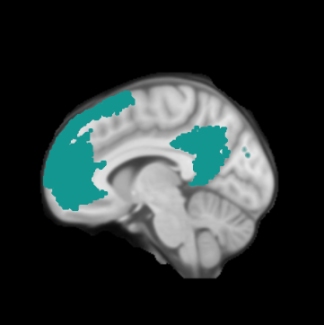Find out all you need to know about fronto-temporal degeneration, a neurodegenerative disease that is still poorly understood.
Understanding this neurodegenerative disease
Fronto-temporal degeneration (FTD), sometimes called fronto-temporal lobar degeneration (formerly known as Pick’s disease), is a brain disease that is still poorly understood by the general public, but which nevertheless affects a significant number of people. These neurodegenerative diseases are particularly complex and have distinct features from Alzheimer's disease, although they are often associated with behavioural and cognitive disorders.
What is fronto-temporal degeneration?
Frontotemporal degeneration is a set of neurodegenerative brain diseases that affect the anterior and lateral regions of the brain, specifically the frontal and temporal lobes. These areas are responsible for essential functions such as behaviour, decision-making, emotions, language and memory. When these areas are damaged, this leads to very specific neurological and psychiatric symptoms.
A syndrome with distinct symptoms
The symptoms of FTD differ from those of Alzheimer's disease in their nature and course. While Alzheimer's disease is characterized primarily by memory impairment, FTD causes more pronounced behavioural changes, as well as cognitive and sometimes language difficulties. Patients often show apathy, lack of motivation, and marked social withdrawal. They may also exhibit behavioural or verbal disinhibition, leading to inappropriate or excessive behaviour in certain situations.
Eating disorders, stereotyped and ritualized behaviours, and difficulties in controlling emotions are also common in patients with FTD. These symptoms may vary from patient to patient, but all have in common signs of deterioration in social and emotional functions, which significantly affect quality of life.
Causes of fronto-temporal degeneration
Abnormal protein accumulations
Frontotemporal degeneration is caused by abnormal accumulations of proteins in neurons. The most common form of this pathology is associated with TDP43 protein accumulation, which occurs in about 60% of cases. This accumulation disrupts the normal functioning of nerve cells and progressively leads to their death.
In rarer forms of FTD, accumulation of Tau protein or Fus protein can also be observed, but these forms are much less common. Why these proteins accumulate remains largely a mystery. However, recent studies have identified some genetic causes for the development of FTD.
Genomic origin: a partial explanation
Approximately one-third of patients with fronto-temporal degeneration have a family history of the disease, suggesting a strong genetic component. Currently, researchers have identified some 20 genes involved in these familial forms of pathology. Genetic mutations may be responsible for the accumulation of TDP43, Tau, or FUS proteins in neurons, thus accelerating the degenerative process.
However, it is important to note that in many cases, FTD can develop without clear genetic factors, making the disease even more complex to study and treat.
Diagnosis of fronto-temporal degeneration
The diagnosis of fronto-temporal degeneration is based on the observation of clinical symptoms, but also on neurological and neuroimaging examinations. A brain scanner or MRI can detect brain damage that is characteristic of the disease. In addition, neuropsychological tests are often used to assess the cognitive, behavioural and emotional functions of the patient.
Since the symptoms may be similar to those of other psychiatric or neurodegenerative disorders, it is essential to make an accurate diagnosis and to differentiate FTD from pathologies such as Alzheimer's disease or behavioural disorders related to other neurological causes.
Treatment of fronto-temporal degeneration
Lack of curative treatment
Currently, there is no cure for fronto-temporal degeneration, whether genetic or not. The treatments available are primarily aimed at alleviating symptoms and improving the quality of life of patients. For example, some molecules used to treat other neurodegenerative diseases, such as Alzheimer's disease, can be adapted for patients with FTD. However, these treatments do not stop the progression of the disease.
Stimulating cognition and language
Non-drug approaches can also be used to improve the cognitive and language functions of patients. Cognitive stimulation and speech therapy are essential tools to help patients maintain a certain level of communication and independence in their daily activities. These therapies can provide real support to patients and their families.
Psychological support for patients and caregivers
Fronto-temporal degeneration profoundly affects not only patients, but also their families and loved ones. It is therefore crucial to provide psychological support to patients, as well as to family caregivers. The use of psychologists and patient associations, such as the France DFT association, makes it possible to better understand the disease and to help families cope with the emotional challenges of caring for a loved one with DFT.
Research and future prospects
In recent years, significant advances have been made in the understanding of fronto-temporal degeneration, particularly with regard to the genetic forms of the disease. Therapeutic trials specifically targeting these genetic forms open up new prospects for treatment and offer considerable hope to patients and their families. Researchers are continuing their work to better understand the underlying mechanisms of FTD and to develop more effective treatments.
For more information

Frontotemporal degeneration (FTD)
Frontotemporal degeneration (FTD), also known as frontotemporal dementia or Pick’s disease, refers to a set of cognitive and behavioural neurodegenerative diseases. Around 6,000 patients suffer from this condition in France. FTD affects men and women...
Read more
